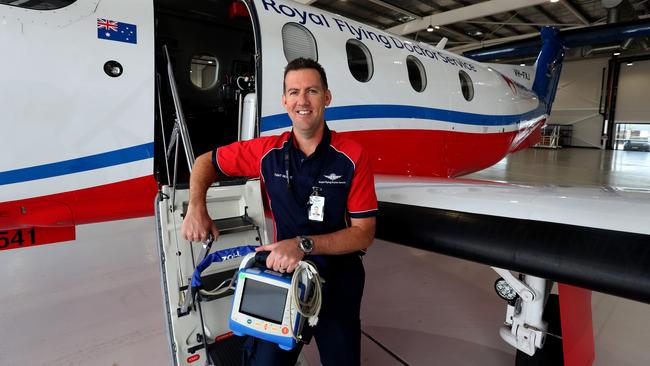Industry specific health funds find favour
Health funds based on a profession or industry know what their members need.

In the past 30 years the health insurance industry has seen massive changes as premiums rise, needs differ and the number of people taking out cover drops per capita.
Debate is raging over premium rises and over the demands public hospitals place on private patients to use their own insurance to help cover funding shortfalls.
As people contemplate cutting their level of cover or withdrawing entirely to save money, Michael Oertel has watched the not-for-profits he has headed for the past 22 years, Police Health and Emergency Services Health, increase membership. His staff has grown from two to 50.
“Police and emergency services, they go to the worst scenarios, they go to fires, motor vehicle accidents, we understand that and relate to that,” Oertel says. “We understand the psychiatric needs of our members, they’re on their feet, we have excellent podiatry (benefits), hearing loss from firing guns and other specific services.”
When most people think of health insurance they fail to consider workplace occupational health and safety. Those issues are significant in policing and emergency services, Oertel says, including the need for greater mental health recognition.
Oertel points to an incident in Melbourne in February where an Australian Federal Police officer died from gunshot wounds at the AFP offices. There were no suspicious circumstances. In March a police officer and former soldier walked into an Eyre Peninsula hospital and also took his own life.
“One thing we’re doing is pushing mental health recognition,” he says. “We’re partnering with police associations around Australia and focusing on mental health. We can be very focused because of our membership and very much being able to assist our colleagues. We saw what happened recently and that’s not uncommon, unfortunately.”
Oertel, who had a background in accounting, began his career at Mutual Health in 1980 as a junior accounts clerk. Over 15 years he watched the industry change as funds went from being mutual organisations, where members were shareholders, to listed companies. Mutual Health underwent several iterations and it is now part of Bupa.
In 1995 Oertel took a role at the SA Police Employees Health Fund, a mutual not-for-profit fund only available to police officers and their families, and only including hospital cover. Brand recognition was low because many members had separate funds to cover extras.
Within a year he had expanded its services to extras, with three- quarters of the police force’s 5000 members taking up cover within 12 months. By 1998 the fund had lost its compulsory membership and police no longer had to join as a condition of employment, but Oertel says he lost few members because the cover had been tailored to staff, was reliable and cost effective.
As the only fund specifically catering for police nationally, unions began calling Oertel to see if services could expand to their workforces. The fund expanded to the Northern Territory in 2001. In 2003 it expanded to cover Queensland, then Western Australia in 2005, Tasmania in 2007 and Victoria and NSW last year.
Earlier this year Oertel expanded his workforce and launched Emergency Services Health nationally, covering all workers, volunteers and their families. Other emergency service organisations had seen how a fund could improve workplace health and offer services specific to the needs of people in risky or dangerous situations.
As well as expanding eligibility and starting new funds, Oertel has overseen the creation of the HAMBS co-operative as its director. It is an Adelaide-based company that provides software and information technology services to the private health insurance industry — providing more white collar jobs in the industry. He also chairs HIRMAA, which represents private industry or employer-focused health insurers.
If you or someone you know needs help, phone Lifeline on 13 11 14, Beyond Blue on 1300 224 636 or the 24-hour Suicide Call Back Service 1300 659 467.
***
FLYING NURSE AN ANGEL BUT HIS WORK CAN BRING HIM DOWN
Michael Penno has been flying throughout South Australia and across borders for a decade in his capacity as a Royal Flying Doctor Service flight nurse, saving lives, delivering babies and transporting sick people.
“All nurses in the RFDS also have midwifery training because we transfer a lot of pregnant women,” Penno says. “Eighty per cent of our transfers are done as a flight nurse only, without a doctor, and obviously with a pilot.”
That means there is a great deal of responsibility resting on Penno’s shoulders and he does most of the work.
His own health needs are also different to general nurses but similar to those of a paramedic, working in a mobile environment with specific challenges.
“We’re working around aircraft, there’s noise, we’re in a confined space that moves around unexpectedly,” he says.
“We’re out in turbulence, heat and cold. We can't control the environment. We have heat and airconditioning and it takes a while to warm up, it’s not like a Qantas flight.”
Penno, 37, says there is also a risk associated with patient care. The RFDS transports mental health patients, people who are drug-affected, and have manual handling issues, including lifting patients who are getting heavier. “The average size of people is getting bigger every year,” he says.
The Adelaide-based nurse works shifts ranging from eight to 11 hours and usually between four and six days a week, juggling family and life around flights.
He and his family are healthy, but he says the demands on his body mean he often needs physiotherapy sessions for back issues, which are generally associated with manual handling tasks.


